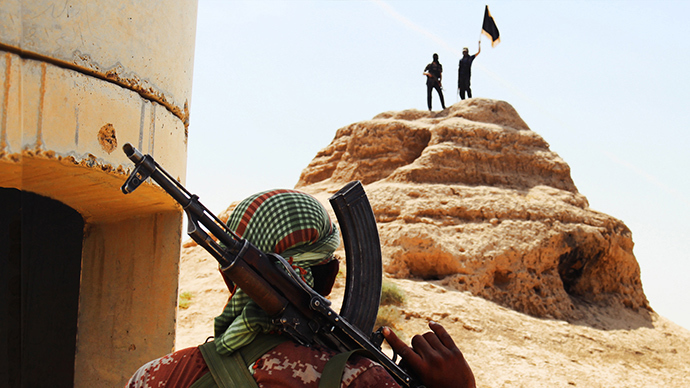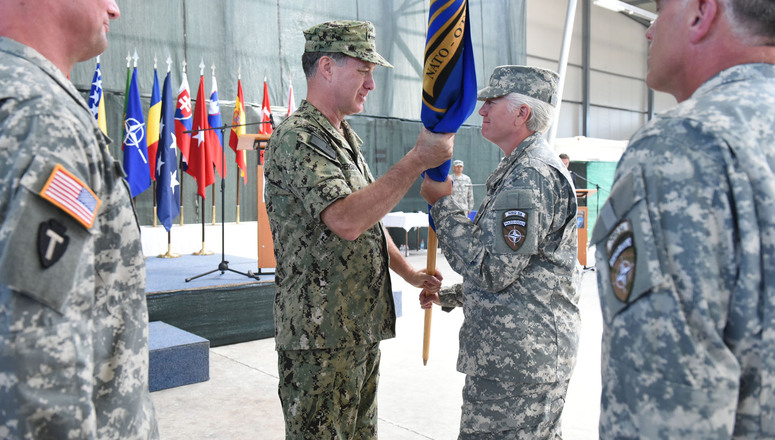As daunting as the Islamic State of Iraq and Syria’s (ISIS) recent success may be, its ability to emerge from the mass of Syrian rebel groups as little more than an off-shoot of Al-Qaeda and stand out with its military success is undeniably noteworthy. In a relatively short space of time, ISIS managed what its parent-group aspired to achieve, but never did: take control of a large segment of territory and proclaim a new caliphate.
Though the inhabitants of the parts of Iraq overrun by the group largely denounce the occupation, the fact is that few in the country are willing or able to oppose the advance. ISIS has on more than one occasion caused the Iraqi army to drop arms and flee in the face of a vastly numerically-inferior force. This route is reminiscent of Castro’s advance through Cuba in 1958: though government forces outnumbered Castro’s, the result was an unmitigated disaster for Batista’s army, brought about by a lack of pride, prestige and motivation amongst soldiers, and evidenced by their throwing down their weapons and abandoning their posts wholesale. Similar conclusions can be drawn following the ease with which ISIS advanced into Iraq in June – although fear definitely played its part given ISIS’s reputation as a jihadist group too brutal even for Al-Qaeda.
Regardless of whether or not the newly-proclaimed caliphate can be attributed to ISIS’ fighting abilities or the Iraqi army’s shortcomings, supposedly disaffected Muslims in Europe have taken to social media to welcome the news, as well as gathering to protest while shouting slogans such as ‘Death to the Jews’ (off-topic as that may seem). Across the Atlantic, a number of US citizens have followed in their European counterparts’ footsteps and made their way to Syria to join in the jihadist group’s cause. This would suggest a significant degree of popular support. However, the main question is whether the jihadists are being welcomed with open arms in the areas of Iraq and Syria brought under the banner of the Islamic State.
As a result of its relative success in the region and the added manpower this achieves, ISIS is estimated to have 10,000 combatants at its disposal in the region.
Given that the ranks of ISIS’ army have been bolstered by an alliance (albeit one of convenience) with Sunni tribes and groups alienated by Iraq’s Shiite government, it would indeed seem that the jihadist group has been fairly well-received on the whole. As a result of its relative success in the region and the added manpower this achieves, ISIS is estimated to have 10,000 combatants at its disposal in the region.
What of civilians though? Those who have no desire to join the ranks of the invading force have little reason to put up much of a fight, given Iraq’s nature as a Sunni-majority country led by a Shiite government which has systematically maltreated and neglected the Sunni segments of its population since the US withdrawal. As for those in Syria, there isn’t much non-belligerents can do other than hope allegations of an alliance between ISIS and Assad’s government are unfounded (and it would appear that they are).
Nevertheless, the form of Islam championed by ISIS is undeniably radical and has caused significant grievance. It reportedly threatens women with female genital mutilation (although such suggestions are looking increasingly doubtful), and puts in peril the lives and livelihoods of Christians with threats of execution if they fail to pay an extortionate religious tax, convert to Islam or leave their homes.
However, what is arguably most likely to cause widespread discontent in ISIS-controlled areas is the systematic destruction of religious shrines. Mosul in particular has seen concerted ISIS efforts at bombing a number of religious landmarks, such as the Mosque said to contain the tomb of the prophet Younis. Such instances of extreme desecration stem from ISIS’s view that the worshipping of idols is blasphemous and to be eradicated from Islam.

Initially, ISIS met little resistance as it destroyed these relics, shrines and mosques – most likely because of the wanton and seemingly illogical nature of the act. However, citizens of Mosul recently formed a human barrier around the Crooked Minaret to protect it from militants converging on it with explosives. On July 31, the razing of the prophet Jonah’s tomb proved to be a step too far, and hostilities between the disgruntled population of Mosul and ISIS combatants erupted into open, albeit limited, violence. Some hail this as the beginning of the end of the Islamic State.
Such assertions are perhaps premature: dissent from Mosul’s population – which could well spark widespread resistance throughout Northern Iraq – is likely to be met with extreme violence from the militants. ISIS has already proven itself ruthless and willing to execute civilians and combatants alike in extremely brutal ways. However, although the group’s resources are more than abundant, their manpower remains limited. The potential for recruiting is also finite, as most civilians would prefer to remain impartial rather than jump on the radical and brutal bandwagon.
Hopes of a concerted effort for cooperation between the Sunni populace and the government would be wishful thinking; however, a well-timed renewal of the government offensive, combined with sustained resistance from the population – should they gain any momentum – could well spell a quick end to the Islamic State. Whether or not this would leave Iraq in an even bigger mess of sectarian discord and violence than before, however, is another matter entirely.





